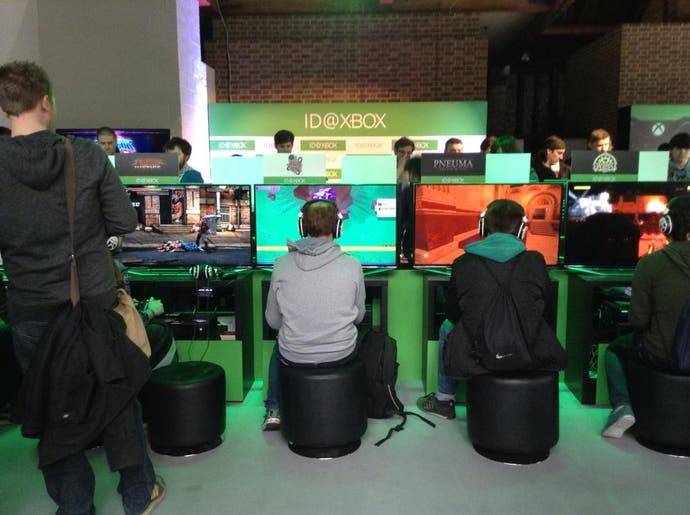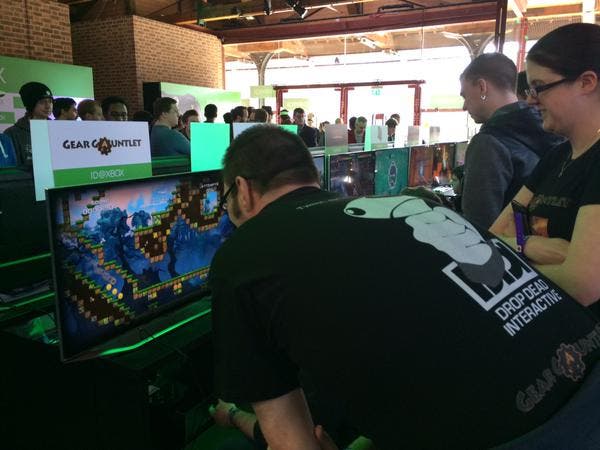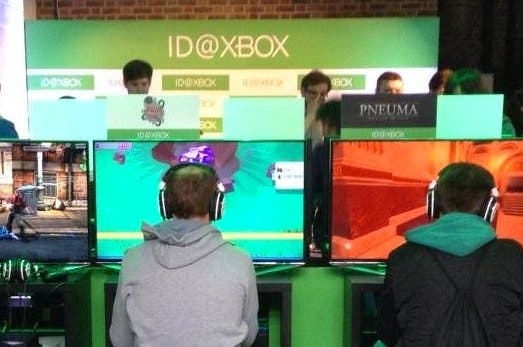Microsoft: any game can come to Xbox One, despite parity clause
Plus: ID@Xbox exec on missing No Man's Sky.
Microsoft's Xbox One parity clause has caused a lot of confusion - both among the developers it relates to and gamers trying to work out if a title they like will be released on their console.
The company originally indicated it would not publish games if they had been released first for other platforms, but has since softened this stance to state it understood the budgetary restrictions indies can face when trying to launch on multiple consoles simultaneously.

For over a year, Microsoft's stance has been that developers should just talk to its ID@Xbox team, and that it would work with each game maker to formalise a deal on a case-by-case basis. But then, last October, Xbox boss Phil Spencer emphasised that the clause was still present to ensure that Xbox One owners felt "first class".
The parity clause is designed to encourage developers to launch on Xbox One at the same time as on other platforms. Or, if they launch later on Xbox One, this version is different somehow.
"I don't want somebody to come in and just think 'I'm going to go do a special game on one platform and then I'll get to Xbox whenever I get to it.' I don't think that's right," Spencer explained last year.
So what's the latest? Microsoft has just finished showing off a new and impressive wave of ID@Xbox games at GDC 2015, where it also revealed that the program would also be coming to Windows 10 and in some cases offer cross-buy and cross-play support.
Here, in a new interview with Agostino Simonetta, European boss of the ID@Xbox program, Eurogamer asks what the latest official line is from Microsoft - and whether the company wishes hot indie No Man's Sky hadn't fallen to Sony as a PlayStation timed-exclusive.
Eurogamer: Is it safe to say that, unless a game is entirely exclusive to another platform - developed by a Sony studio, for example - there's nothing to stop a game coming out on Xbox?
Agostino Simonetta: Correct. Unless a title can never come to Xbox, because a developer has signed a publishing deal with someone else, any title can come to ID@Xbox.
Whether a game has come out on a previous platform before or not?
We always get this question. The answer is pretty straightforward - we do understand that developers sometimes need to decide which platform to tackle first. Sometimes this is just because they don't have the resources, sometimes because they have a specific agreement with a particular platform or publisher.
What we say to developers is - come and talk to us. Then we can figure out the best approach for making that title the biggest success it can be on our platform. The message is - talk to us, we can work together. There are no specific limitations on titles that have launched on other platforms coming to Xbox.
Would you say the parity clause has been generally misunderstood?
Look, we don't talk about our business relationships as they are on a case by case basis. We say to developers: come and talk to us and we will work it out. I think you might be right, but we do understand where developers are coming from.
My background is as an indie developer, [ID@Xbox boss] Chris Charla is as an independent developer. But developers can reach out to us on Twitter, via email. Just talk to us. We have titles on the platform that have launched on other platforms before. So it's obvious that it's not impossible - and some people thought it was impossible.
Is the parity clause a method of maintaining quality control?
I don't think it's about quality control. It's just something where we want to have a conversation with developers to offer them a chance of success and to offer the consumer something that is fresh for them. It's not about quality control.
How important is the hunt for exclusives?
We have tons of exclusive content that we announced last week at GDC. It's part of the business today. But what's more important is delivering good content whether it is exclusive or not.
Do you regret missing out on No Man's Sky?
That's an interesting question... Look, last week we announced we were working with Frontier on Elite, and there are so many games coming to Windows 10 and Xbox. Personally, no. We have some exclusives that other platforms don't. Over 1000 developers have Xbox kit in their office today with over 100 games in development. My personal answer is that we have a very strong line-up.

How important is curation?
There is always an element of curation on a platform. We always try and support titles that are coming to a platform, via Major Nelson and Xbox Wire. And they are also featured on the platform itself - if you look at the recommendation engine where you get things based on your previous store behaviour.
It's important, especially on console, consumers have a level of expectation and we at Xbox in our relationship with developers expect a certain level of curation from our side. But I think the old concept of curation is gone - what's in, what's out.
How important is it to maintain a bar of quality, then?
The ID@Xbox program offers an amazing opportunity for developers to achieve the best they can. That starts from the development tools we offer, the hardware, the support throughout development, help when it comes to certification. It has never been easier to get a title to certification than it is now.
Our role is to enable developers to achieve their maximum potential - their maximum level of quality for their product.
Are you happy with the visibility that ID@Xbox titles currently have on Xbox One?
We have a nice approach, content is content is content - ID@Xbox titles get promoted alongside AAA. There are recommendations for content when you go to the store. But can you do better? I think in any job you can always do better, but the feedback at the moment from developers is that they feel we are really behind them.


